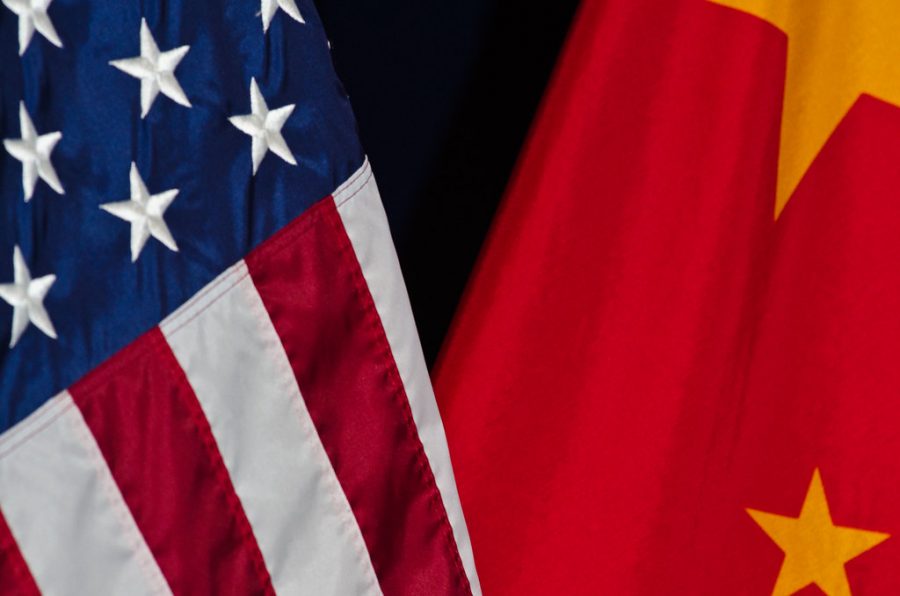Alexander: Don’t Close the U’s Confucius Institute
February 19, 2021
The Confucius Institute at the University of Utah encourages cultural appreciation and admiration of Chinese language and education. Through performances, courses and programs, the CIUU acknowledges the value of Chinese culture in our society — which is critical in a time when US-China relations are extremely tense.
But now, the closure of the Institute looms amid accusations of propaganda and espionage conducted within the CIUU. With Rep. Candice Pierucci’s H.J.R. 8, Utah could soon be closing all Confucius Institutes found on higher education campuses. Pierucci’s concerns reflect those of the Trump administration, and mirror thought-processes of other universities. However, closing these institutes will not provide the security sought by Pierucci and others. Closing the Confucius Institute at the U is a mistake, and could possibly cause more harm than good.
In 2020, relations between the United States and China were at historic tension levels. The effects of the coronavirus pandemic and the Hong Kong protests further escalated that pressure, and the former president’s nicknaming the virus “Kung-Flu” increased agitation and xenophobic attitudes toward Chinese and other Asian people on a federal level and on American streets. Legislators are now calling for the closure of Confucius Institutes over fears that the Chinese government is using these institutes to influence Americans. If the CIUU closes, we will be encouraging a suppression of Chinese culture and education, and further opening every Chinese person and organization in Utah to ridicule and suspicion on the grounds of racist political rhetoric. This incredibly xenophobic and, worse, repetitive of America’s history of mistreating the Asian community through discrimination and exclusionary practices, including during World War II. As we acknowledge our historical mistreatment of the Asian community, it’s also imperative that we pivot away from repeating history. We shouldn’t turn our backs on the CI and condemn these institutes of Chinese culture in the face of adversity.
Many U professors believe in the CIUU, especially those who have worked closely with its faculty and students. In a letter voicing support for the Institute, the U’s Asia Center faculty outlined the benefits the CIUU offers to themselves and their students. Noting unique resources, rich relationships and the enrichment of Chinese culture, the professors explained that the CIUU has strengthened ties between the US and China by fostering collaboration, understanding and appreciation. But the U’s administration doesn’t care what their faculty has to say. Professor Kim Korinek, who directs the U’s Asia Center, told me over email that “University of Utah staff and faculty members working directly with the CIUU were not informed about Chris [Nelson]’s statement on the U’s position and plans for the CIUU and did not receive a response to this letter (sent in November) or to our other queries on decision-making about the CI.” Now, the CIUU’s work — spanning over a decade — is on the brink of collapse. The U planned to get rid of the program independent of Pierucci’s proposed resolution.
Ridding the U of the Confucius Institute would be a mistake. The closure will not only affect the Institute’s professors and students, but Utah’s Dual Language Immersion Program and the Chinese-American population residing here.
In itself, the Chinese Dual Language Immersion Program here in Utah is an amazing accomplishment. But with the closure of the CIUU, the program could experience a permanent setback, in turn affecting the students who have grown up with studying Chinese language and culture and could accomplish great things in the Chinese language. In a state with a rapidly growing Asian population, closing the CIUU might encourage a sense of xenophobia and suppression of Asian (specifically Chinese) cultures, languages and education. Throw that in with deteriorating ties with China, and the US could be in serious trouble.
I understand that concerns over the Confucius Institutes are growing, but closing the Institutes based on baseless claims and suspicion would be completely ignorant. The CIUU is an incredible asset to US-China relations and to education in Utah, and we should be proud of it. We cannot throw that away because of racism and speculation. On the contrary, preserving the CIUU and other Confucius Institutes is in Utah’s best interest and the nation’s.









Logan • Feb 24, 2021 at 1:46 pm
While I overall agree with the sentiments of this article, I do disagree with some of the arguments proposed. Mainly that a core reason the Confuscious Institute is under threat is due to xenophobia. I believe the suspicion of the Confucious institute stems more from its close relationship with the Chinese Communist Party. Criticisms of the institution did not suddenly appear in 2020 but have been persistent since the institute’s inception in 2004. Criticism ranging from CCP propaganda to silence on sovereignty issues with Tibet, Hong Kong, and Taiwan.
Aside from the shameful display of cultural insensitivity the Trump presidency in calling corona “Kung-flu”, I must comment that I feel most western fears aimed towards China is due to the CCP’s governance and aggressive foreign policy, rather than a racial fear of the Chinese (specifically the Han Chinese to be exact). As a half-Chinese mandarin speaker myself, I am afraid and suspicious of certain CCP programs or other organizations with relation to it.
It’s important to separate China and the CCP when having sensitive discussions such as the Confucious Institute. It is too easy to misconstrue this political issue as a racial issue.
That being said, it would be a shame if funding for Chinese education is reduced dramatically. As a Chinese minor, the U’s Chinese professors are fantastic and the dual-immersion program in Utah schools is great.